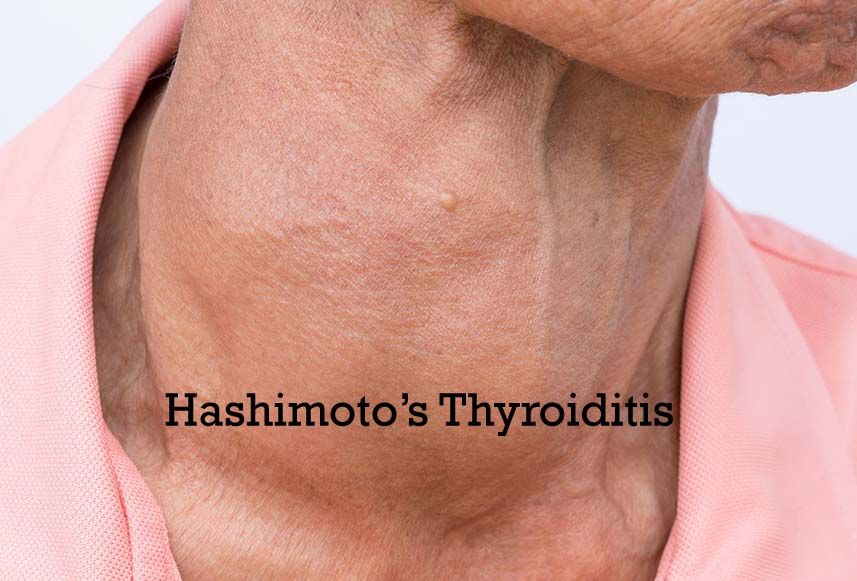Hashimoto's Thyroiditis

Hashimoto's thyroiditis is when the thyroid gland becomes inflamed and enlarged. This enlargement can cause swelling in the front of the neck, known as a goiter. While this goiter rarely causes pain, it can make swallowing difficult and leave the throat feeling full. Fortunately, there is a simple test to screen for this disease. TSH (thyroid-stimulating hormone) is elevated when thyroid activity is low, so high levels of this hormone may indicate Hashimoto's.
Causes
Hashimoto's thyroiditis is a disorder of the thyroid gland. It causes a decrease in the number of thyroid hormones in the blood and may go undetected for years. The symptoms of Hashimoto's disease are similar to those of hypothyroidism, with some patients showing no symptoms at all. If you suspect you may have Hashimoto's thyroiditis, you should consult your doctor to discuss treatment options.
Hashimoto's disease is most often found in women aged 40 to 60, though it can affect men of any age. Women who have other autoimmune diseases are also at increased risk for the disease.
Symptoms
Hashimoto's thyroiditis is an autoimmune disorder that causes the thyroid gland to become enlarged. It causes symptoms such as pain and difficulty breathing and speaking. The symptoms of Hashimoto's thyroiditis may be similar to those of other medical conditions, but a physician will be able to identify them.
Women with Hashimoto's disease are also at a higher risk for infertility, as altered hormone levels can cause problems during ovulation. Some women with hypothyroidism do not ovulate at all. Other symptoms may include irregular or heavy menstrual periods. A poorly functioning thyroid gland can also cause systemic inflammation, which can affect the joints.
Treatment
Hashimoto's thyroiditis causes damage to the thyroid gland. It can lead to a condition known as hypothyroidism, which can lead to a variety of symptoms, including depression, lowered sexual desire, and slowed mental function. People with this condition may also experience weight gain, dry skin, and hair loss.
One study compared the effects of thyroid medication with those of thyroidectomy in people with Hashimoto's thyroiditis. Participants were 18 to 79 years old and had thyroid antibody levels at or above the upper limit of normal. They were undergoing medication to treat symptoms and reported a decreased quality of life.
Genetic susceptibility
The genetic susceptibility to Hashimoto's thyroiditis is highly polygenic, with three loci associated with the disease. Interestingly, the paternal X chromosome has a lower impact on the expression of the susceptibility genes than the maternal one. Women are more likely to develop the disease than men, but researchers are not yet sure why.
The risk for developing Hashimoto's thyroiditis is largely determined by the presence of a variant of the HLA-DR gene. This gene regulates the immune system and may contribute to susceptibility to autoimmune thyroid diseases. This gene allele is found in 65 percent of the general population.
Environmental factors
Although Hashimoto's thyroiditis is an autoimmune condition, many environmental factors can contribute to its onset. Several of these factors are based on genetics, such as high iodine intake or selenium deficiency, and are also related to infectious diseases and certain drugs.
Microbes can stimulate the immune system to attack the thyroid gland. In addition, the condition is genetically inherited and often affects women. There are no diet restrictions for people with Hashimoto's thyroiditis, though a healthy diet and physical activity are encouraged. In the United States, most salt contains iodine. This prevents mineral deficiency, but some salt is sold without iodine.



